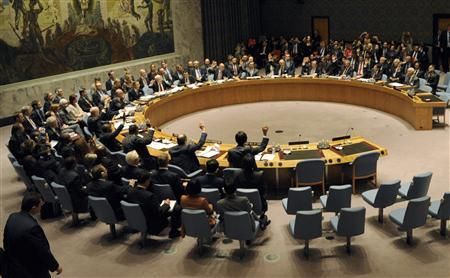
India on Thursday took objection to the top United Nations human rights official's use of the phrase "India-Administered Kashmir", saying it cannot be equated with PoK, and expressed "surprise" at his silence on Pakistan's use of terrorism as an instrument of state policy.
Reacting to UN High Commissioner for Human Rights Zeid Ra'ad Al Hussein's oral update during the 34rd Session of human rights council in which he made a reference to "India-Administered Jammu and Kashmir", India asserted that the whole state of Jammu and Kashmir was its integral part.
"The central problem in Jammu & Kashmir is cross-border terrorism, and hence, we are a little surprised that the high commissioner was silent regarding Pakistan that uses terrorism as an instrument of state policy," India's Ambassador and Permanent Representative to the UN in Geneva Ajit Kumar said during the general debate on the oral update by the United Nations High Commissioner for Human Rights.
"Pakistan remains in illegal occupation of a part of our territory. The two cannot and should not be equated. The neutrality of the phrase 'India Administered Kashmir' is, therefore, artificial," he said.
In his address, Hussein on Wednesday said, "As you are aware, my Office has faced difficulty obtaining access to a number of regions. In September, I raised this issue with the Council, highlighting among others Ethiopia, Syria, Turkey's south-east region, Venezuela, and both sides of the Line of Control, in India-Administered Jammu and Kashmir, and Pakistan-Administered Kashmir."
In several areas where the Office of the United Nations High Commissioner for Human Rights has received indications of severe violations, and where access continues to be refused, it has begun remote monitoring, and fact-finding missions to neighbouring countries -- reports for which it intends to make public, he said.
Defending India refusing OHCHR officials access to J&K, Kumar said India has noted the High Commissioner's reference to the denial of access and acknowledges the role sought to be played by the OHCHR in effective promotion and protection of human rights.
"However, more would be gained if primacy were accorded to cooperation over confrontation with the states concerned," he said.
He highlighted that J&K has a democratically elected government that represents all sections of the people unlike the situation in Pakistan-occupied Kashmir.
Kumar asserted that the "robust and mature" Indian democracy proved once again that it has sufficiently strong and adequate mechanisms to redress any internal difficulties even if they are incited from outside.
He said that normalcy has returned as 99 per cent of the students of Jammu and Kashmir have taken their high school examinations and schools have reopened.
"States are the primary bearers of responsibility when it comes to promotion of human rights; countries often have unique national circumstances, and it is important to invest trust in their efforts," Kumar said.






 © 2025
© 2025